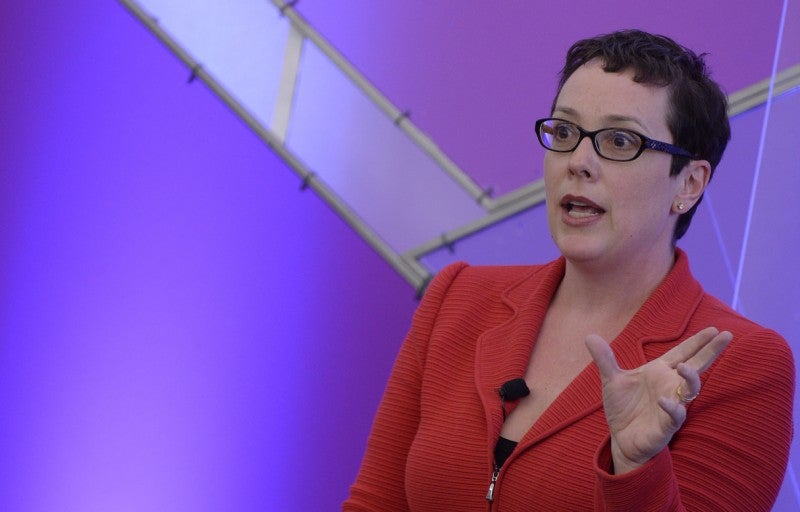
ProPublica Senior Reporter Julia Angwin at the 2014 Aspen Ideas Festival.
There are at least 212 data tracking companies that may have thousands of data points describing who you are as a consumer. Those same data points could be responsible for price disparities in online shopping or targeting for political mailers. With recent news that Facebook may have manipulated about 700,000 users as part of a study on emotions, the power of big data is front and center — in consumers’ minds, and at the Aspen Ideas Festival.
ProPublica Senior Reporter Julia Angwin and FTC Commissioner Julie Brill joined Quartz Editor-in-Chief Kevin Delaney to discuss the business of big data tracking. To begin, Brill said that she believes privacy has grown over the last year, mostly because consumers are becoming more aware of the tracking that happens online.
But Angwin, who has reported on the issue of data tracking for years, brought a more gloomy assessment. Without regulations and due process, consumers might not know what companies are tracking their data and have little recourse if they believe they were damaged.
Brill said solving the privacy issue is important to make progress in sectors that could be improved by big data, such as education and health care. “Big data actually has a tremendous potential to solve some huge societal problems,” she said. “I don’t think any of these potential benefits are going to be realized until we solve the privacy issues.”
“The things that I wrote about in 2010 as ‘shocking’ have been completely normalized, and in fact the threshold for what we consider privacy-invading technology has increased,” Angwin said. “The level of surveillance is getting much more invasive. Now, you can argue there’s more awareness and there’s more people trying to combat it, but it’s an arms race.”
